
How We Structure Tracking & Progress
Discover how our nursery’s blended Montessori approach lays a foundation for lifelong growth, aligning with your child’s unique journey and ensuring a secure, confident future.
Home > Our Philosophy > Our Approach
A Deeper Dive On Our Integrated Approach
Will they be ready for the challenges ahead?
At Snowflakes Nursery, our hybrid Montessori-EYFS approach reassures parents who worry about challenges every child will face in the future. Providing guided autonomy in their early years with our structured support not only gives children the confidence to make further decisions but also instils in them the joy of learning.
The Snowflakes Montessori Work Cycle and Daily Personalisation
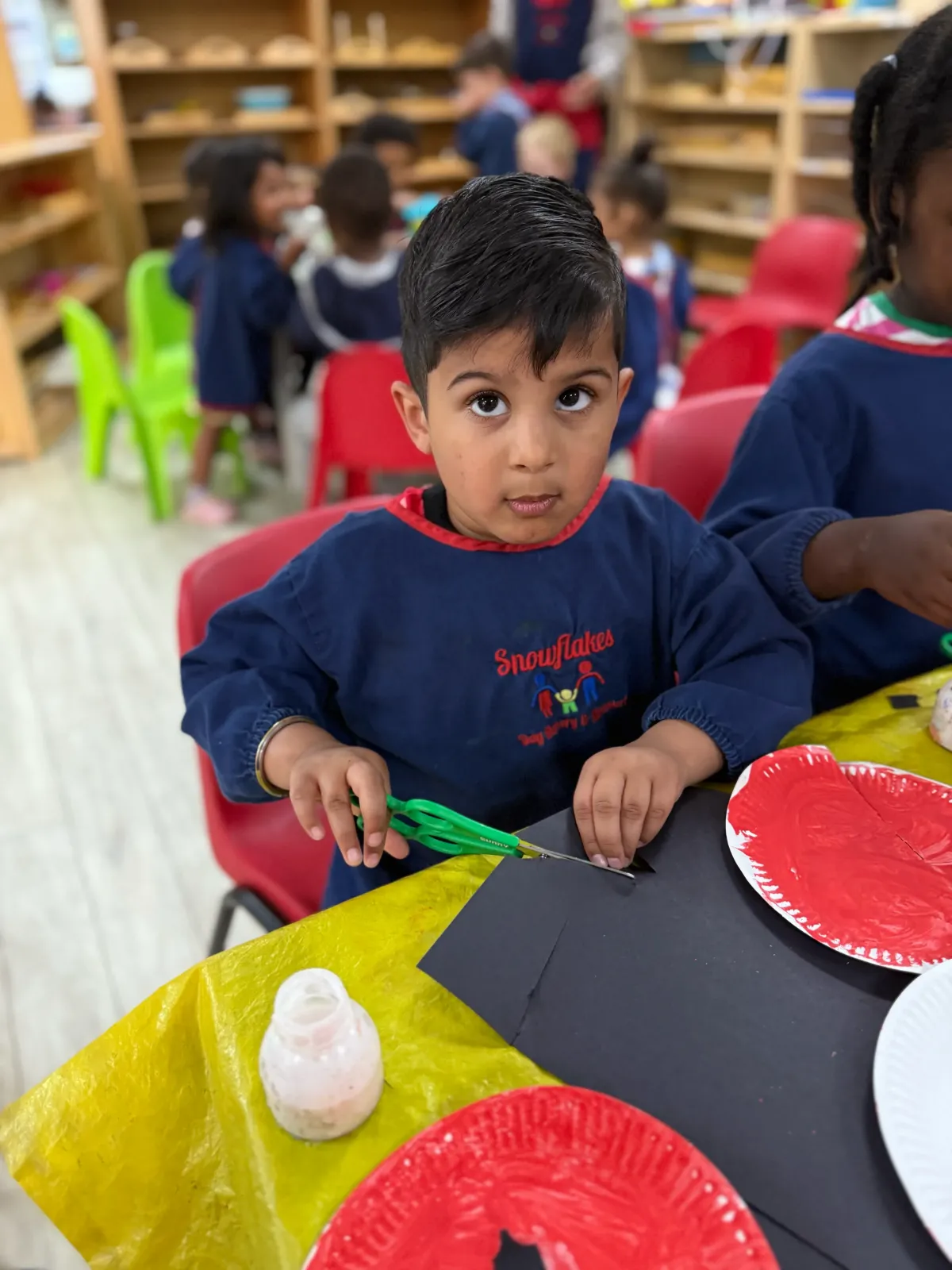
What is a work cycle in Montessori education, and how does it personalise learning?
The morning work cycle is a dedicated time for children to lead their own learning and explore development-based activities within prepared environments.
At Snowflakes, these activities are consistently planned weekly to ensure that every child has activities available to them that support their "next steps".
Children select from materials such as sandpaper letters or counting beads, and are gently guided toward age-appropriate challenges.
Tailored Challenges for Every Age
This approach to building independence through Montessori seamlessly integrates individual development plans, allowing a 2-year-old to sort by colour while a 4-year-old measures ingredients—united by the same theme, yet tailored for personalised growth.
Blending Structure with Freedom
Daily routines blend structure with freedom, promoting sustained focus. EYFS 2025 updates emphasise such child-initiated play for holistic development. A parent reflected: “The work cycle helped my shy child discover passions independently.”
The Weekly Thematic Curriculum in Action
How our curriculum on weekly themes expands your child’s horizons
Each week introduces engaging themes like “Under the Sea” or “People Who Help Us,” systematically building knowledge while respecting individual interests.
Integrating the Seven EYFS Areas
This structured learning in the early years delivers profound benefits by integrating the seven EYFS areas.
Communication and language,
Physical development,
Literacy,
Mathematics,
Understanding the world,
Expressive arts and design,
Personal, social, and emotional development
Building Innate Curiosity
These experiences foster curiosity and foundational skills through immersive, play-based activities that feel natural and joyful.
Concerns such as an overly structured curriculum are thoughtfully mitigated through flexibility, ensuring no child feels confined while gaining a broad exposure to diverse ideas and concepts.

Understanding Guided Autonomy For Toddlers & Preschoolers
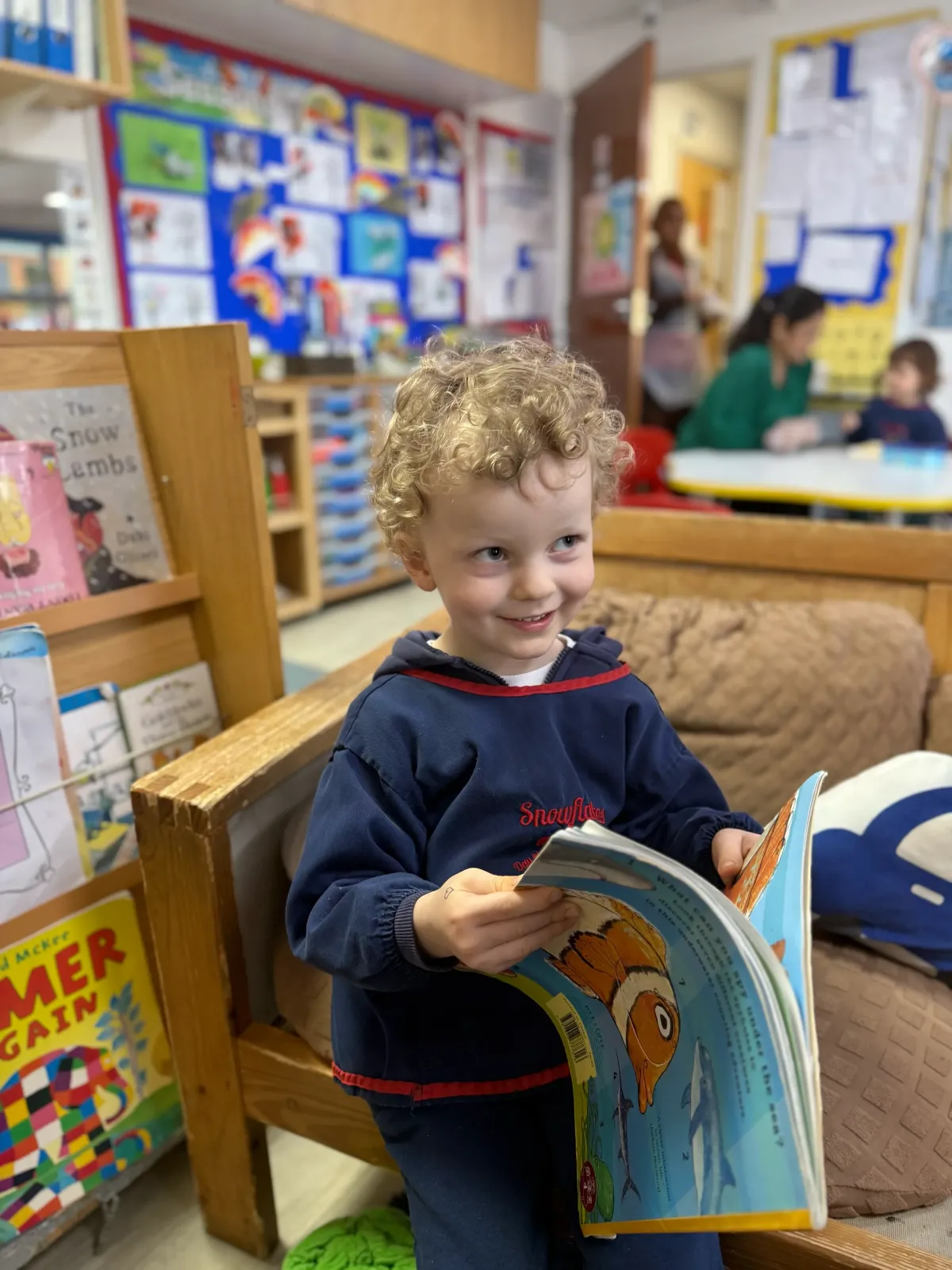
What is guided autonomy in early years and how does it build your child’s confidence?
At Snowflakes Nursery, guided autonomy means offering children meaningful choices within a supportive framework. This approach encourages children to follow their interests while gently guiding them in small steps towards their developmental milestones every day. Small, consistent wins lead to small, consistent boosts in confidence.
Avoiding Gaps in Pure Free Choice
Over our two decades in childcare, we have found that pure free choice can lead to gaps in children's development. Our method ensures comprehensive growth of the whole child, providing parents with a sense of security about their child’s development.
Unique Activities for Unique Curiosities
Children can explore anything from sensorial activities to practical life tasks during their structured work cycles; the choice is theirs, yet each option is thoughtfully curated to spark independence and individuality, in line with Montessori principles.
This curation bridges their innate curiosity to lasting skills, preventing developmental gaps we’ve observed in unchecked free choice.
At Snowflakes, we’ve seen children show noticeable gains in independence year after year and can confidently say this approach can produce growth in children that is sometimes shocking to our parents.
Discipline and Behaviour in Child-Led Settings
Our approach focuses on positive guidance over "punishment". We teach self-regulation through natural consequences and respectful communication.
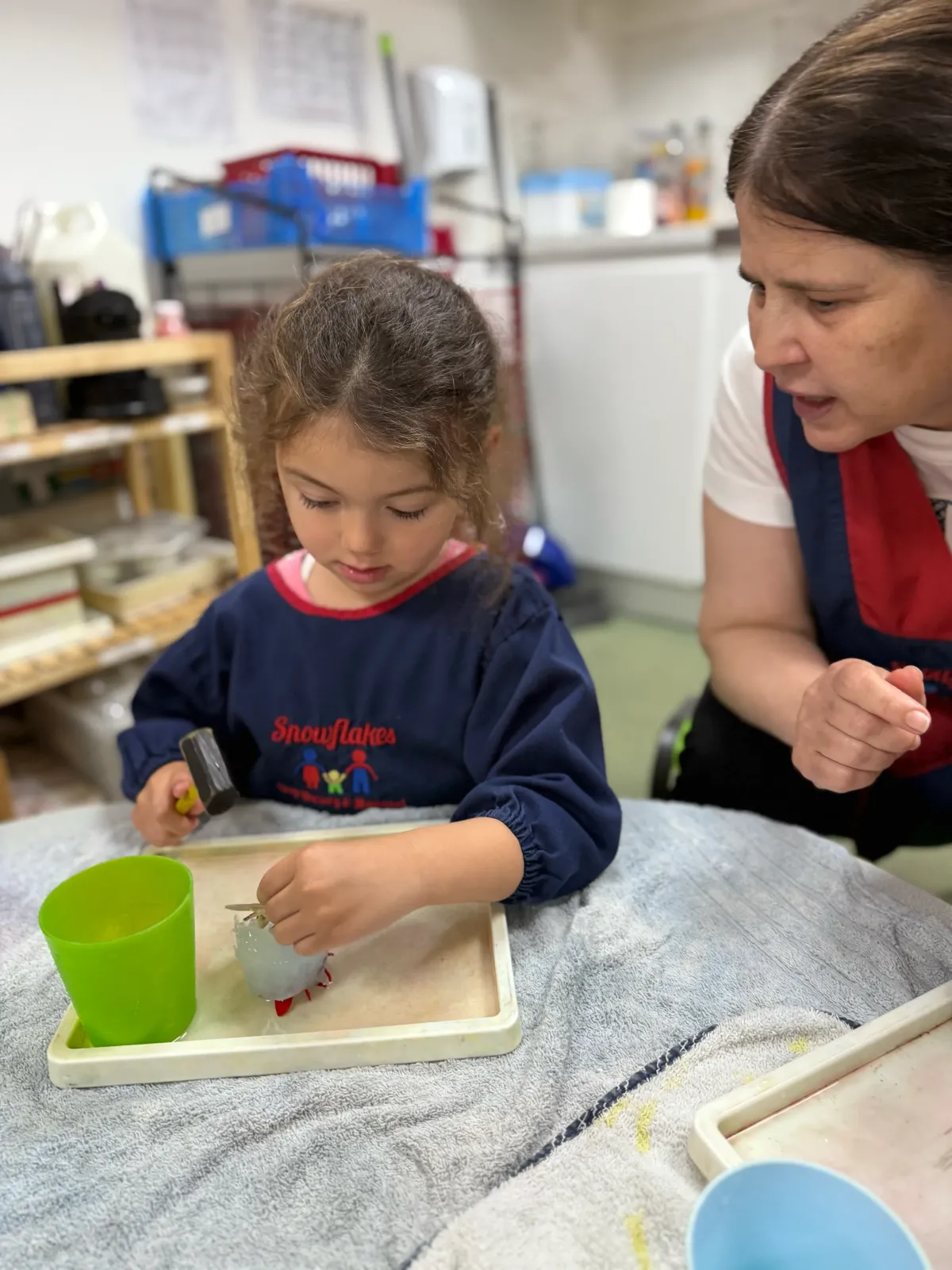
Modelling Empathy in Real Time
If a child struggles with sharing, our educators model empathy by gently acknowledging the child’s feelings, such as saying,
“I can see you’re finding it hard to let go of that toy right now, and that’s okay”, followed by demonstrating turn-taking with another child, thereby validating emotions and demonstrating collaborative play in real time.
Building Emotional Resilience
This empathetic approach not only resolves the immediate moment with kindness but also equips the child with tools for future interactions, promoting emotional resilience without overwhelming.
We encourage a genuine & internal understanding that their actions affect others around them, aligning children with EYFS personal, social, and emotional development goals.
Why Parents Choose Our Approach
Learning As Play
When parents ask about additional activities, we can confidently say children are getting a head start. Your child isn't just playing with occasional learning. They are being taught that learning can be play. Lifelong curiosity starts before school.
They're receiving:
Personalised curriculum updated weekly based on assessment
Systematic knowledge building through our 52-weekly themes
Targeted skill development within engaging themes
Comprehensive coverage ensuring no developmental gaps

He has become increasingly confident in exploring new activities and interacting socially. His independence has grown, as he now enjoys completing tasks on his own and takes pride in his accomplishments. The staff has been incredibly supportive, always approachable and open to providing regular feedback on his progress.
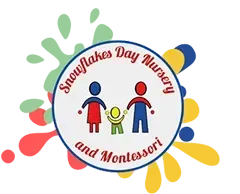
K R
Father Of Child At Norwood Green
Day Nurseries Review
Are you interested in seeing our guided autonomy in action?
Book a tour today at one of our four settings, mid-morning. Our team can answer more of your questions.
For more about our work, visit our related pages and deeper dives:
Curious about daily life? Check our Toddler Room pages to understand more about how development changes as they grow
Download Our Parent Pack
more information
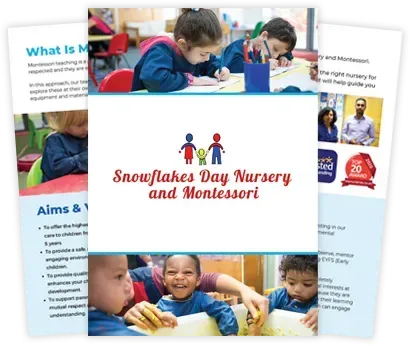
© Copyright 2026. Snowflakes Day Nursery and Montessori. All rights reserved.
8 Higham Mews
NORTHOLT,
UB5 6FP
Phone:
02088458998
Regulatory Authority ID:
EY394004
Date Registered by
Regulatory Authority:
10 Sep 2009
100 Carlyle Avenue,
SOUTHALL,
UB1 2BL
Phone:
02085716378
Regulatory Authority ID:
EY393991
Date Registered by
Regulatory Authority:
02 Dec 2009
Comer Crescent,
SOUTHALL,
UB2 4XD
Phone:
02085716867
Regulatory Authority ID:
EY497465
Date Registered by
Regulatory Authority:
27 Sep 2016
St Mary's Church Hall,
Norwood Green Road,
SOUTHALL,
UB2 4LA
Phone:
02085073222
Regulatory Authority ID:
EY561899
Date Registered by
Regulatory Authority:
07 Aug 2018